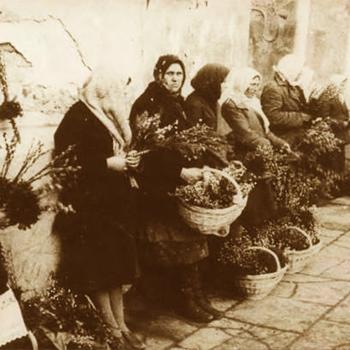
Rabindranath Tagore was born on this day in 1861. Tagore was the first non-European to win the Nobel Prize for literature, in 1913.
Of particular interest to me is how following his father, a leader of the Brahmo Samaj, a Hindu-reform movement inspired in part by both English and American Unitarianism, Tagore would be closely associated with this spiritual movement for the whole of his life.
(By the bye, as frequent visitors to this blog probably know, I’m quite fond of Wikipedia, using it frequently as a first resource. I would add I rarely rely upon it as a final one. There is little doubt one needs to be cautious when using it. One way I’ve found to weigh any particular article’s veracity is to look at the “discussion” section. The more heated the more wary I become. The Wikipedia article on the Brahmo Samaj is a fascinating example of the difficulties with this ubiquitous online resource, and how some due diligence is always called for. Just like in life, I suspect…)
from the Gitanjali
On the day when the lotus bloomed, alas, my mind was straying,
and I knew it not. My basket was empty and the flower remained
unheeded.
Only now and again a sadness fell upon me, and I started up from
my dream and felt a sweet trace of a strange fragrance in the
south wind.
That vague sweetness made my heart ache with longing and it
seemed to me that is was the eager breath of the summer seeking
for its completion.
I knew not then that it was so near, that it was mine, and that
this perfect sweetness had blossomed in the depth of my own
heart.
I must launch out my boat. The languid hours pass by on the
shore–Alas for me!
The spring has done its flowering and taken leave. And now with
the burden of faded futile flowers I wait and linger.
The waves have become clamorous, and upon the bank in the shady
lane the yellow leaves flutter and fall.
What emptiness do you gaze upon! Do you not feel a thrill
passing through the air with the notes of the far-away song
floating from the other shore?












